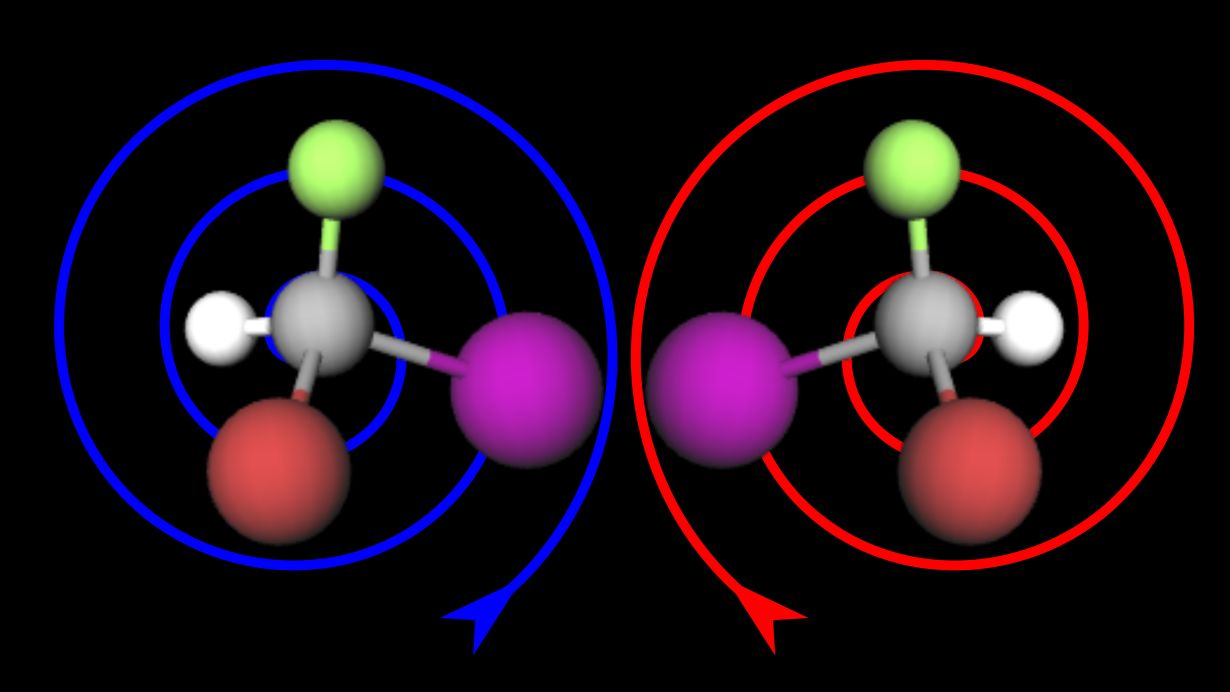
Researchers of Karlsruhe Institute of Technology (KIT) and Voxalytic GmbH developed a new method that allows, for the first time, to elucidate the chiral structure of molecules - the exact spatial arrangement of the atoms - by nuclear magnetic resonance (NMR) spectroscopy. This important step in the development of new drugs used to be a time-consuming process until now. The new method could now become a standard tool for the chemical and pharmaceutical industries. The results were published in the Advanced Materials journal. (DOI: 10.1002/adma.202408547).
The chirality of a molecule refers to its basic structure: Some molecules, so-called enantiomers, occur in pairs and are mirror images of each other. They differ in the way a left and a right glove do. Depending on whether the "twisted" structure of a molecule is left-handed or right-handed, its influence on biochemical and chemical reactions is different. Despite the mirror-image arrangement, the properties vary or even counteract each other.
With drugs, this can have devastating consequences: When children were born with physical deformities in Germany and England in 1960, the active ingredient called "Contergan" or "Thalidomid" was the cause. The drug had been administered to pregnant women for the treatment of pregnancy disorders and was subsequently banned. Since then,it is compulsory for pharmaceutical companies to check whether the active ingredients, which are often chiral, are not converted to their opposite enantiomer in the human body.
Method Facilitates Search for Active Ingredients
Now a joint team of KIT and Voxalytic GmbH (a spin-off from KIT and the University of Freiburg), led by Professor Jan Korvink, Director of the Institute of Microstructure Technology at KIT, has succeeded in measuring the chiral molecular structure directly using nuclear magnetic resonance (NMR) spectroscopy.
Although NMR spectroscopy is the only method to elucidate chemical structures down to atomic resolution at ambient temperature, it had so far been "blind" to the chirality of molecules. In order to measure the "twists" of a molecule, an optical method has been used up to now that can recognize the sense of rotation, but not at atomic resolution.
"We are very excited about the opportunity to turn this method into a convenient tool for the industry and have had the concept patented," says Jan Korvink. This could make chirality elucidation a future standard method of NMR analysis, as Dr. Sagar Wadhwa from Voxalytic, who wrote his doctoral thesis on this topic, explains. "This will make work easier for chemists who do research into the production of specific enantiomers." Dr. Dominque Buyens, biochemist and postdoctoral researcher at KIT, adds: "We will study the new method in context of drug development. It could significantly accelerate drug screening. "
The KIT team is funded by an ERC Synergy Grant (HiSCORE), the CRC HyPERiON, and the VIRTMAT Helmholtz Association.
Original Publication:
Sagar Wadhwa, Dominique Buyens, and Jan G. Korvink: Direct Chiral Discrimination with NMR. Advanced Materials, 2024. DOI: 10.1002/adma.202408547
Being "The Research University in the Helmholtz Association", KIT creates and imparts knowledge for the society and the environment. It is the objective to make significant contributions to the global challenges in the fields of energy, mobility, and information. For this, about 10,000 employees cooperate in a broad range of disciplines in natural sciences, engineering sciences, economics, and the humanities and social sciences. KIT prepares its 22,800 students for responsible tasks in society, industry, and science by offering research-based study programs. Innovation efforts at KIT build a bridge between important scientific findings and their application for the benefit of society, economic prosperity, and the preservation of our natural basis of life. KIT is one of the German universities of excellence.






